Saying 'no' to gifts will build clean government
Updated: 2015-02-12 07:39
By Wang Yiqing(China Daily USA)
|
||||||||
With the Spring Festival approaching, the central authorities have again warned officials to desist from corruption. The discipline inspectors have warned officials against taking gifts or money during the holiday, or face immediate removal from office and investigation according to the Party's discipline and the country's laws.
Usually, holidays and festivals see an increase in bribery. According to media reports, in less than two years since the central leadership's announcement that officials need to follow the rules to reduce bureaucratism and practise austerity to maintain close ties with the public, receiving gifts and money during holidays, weddings and funerals have been the fourth most serious form of corruption and more than 5,000 officials have been pulled up for it. Many corrupt officials have admitted that their first step toward graft was taking gifts or money during holidays or festivals.
Holiday or festival gifts (which include cash) have always been used as an excuse to cover up corruption. Festivals and special social events are still important for Chinese people, and giving and receiving gifts during such occasions are a common practice in China, which many officials use as a pretext to take bribes.
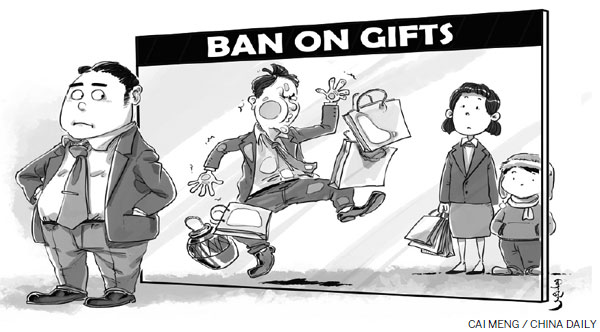
In 2011, the Nanjing Gulou District People's Procuratorate and Nanjing University Institute for Crime Prevention and Control jointly interviewed 150 corrupt officials in prison, and 76 percent of them said they assumed that receiving gifts or cash vouchers during holidays was an acceptable social behavior. In fact, many more corrupt officials have used the cover of such social convention to receive bribes.
Since it is difficult to distinguish between festival gifts that are actually bribes and those that are not, strictly prohibiting officials from receiving any gift or money is the best way to prevent corruption.
At least 92 countries have laws that forbid officials from taking certain gifts. In many countries, not only officials and civil servants, but also professionals such as teachers and doctors are prohibited from receiving expensive gifts. Some countries have specified the value of the gifts a government official can accept. For example, in Berlin, civil servants, including teachers, firefighters and police, cannot accept gifts that cost more than �10 ($11 or 70 yuan), and Massachusetts, Wisconsin and South Carolina states in America forbid civil servants from accepting any kind of gift, even a cup of coffee.
Oriental culture cannot be used as an excuse for taking expensive gifts either. In Singapore, which is famous for clean governance, for instance, civil servants are required to return all the gifts they receive to the donors; if they cannot do so they have to hand them over to the authorities. And if a civil servant receives a gift worth more than 50 Singapore dollars ($37 or 230 yuan) without permission, he/she could face bribery charges.
Moreover, in the Hong Kong Special Administrative Region, regulations clearly stipulate the value and type of gifts civil servants can accept. Even the gift money civil servants and their children receive during the Spring Festival are under the supervision of law. If civil servants receive gift money as an incentive or reward for doing favors to anyone, they violate the law for which they face severe penalties.
Such strict restrictions on civil servants have helped develop a good environment for clean governance instead of undermining social communications. Strict regulations for civil servants and other officials are critical to the fight against corruption. But civil servants have to be given suitable material rewards to meet their reasonable demands. The higher authorities could do so by increasing the salaries of civil servants to a decent level, if it is not possible to offer them high salaries as some other governments do to prevent corruption.
The author is a writer with China Daily.
wangyiqing@chinadaily.com.cn
(China Daily USA 02/12/2015 page12)
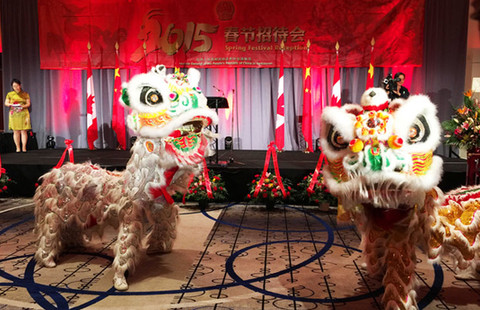
 Spring Festival reception held in Vancouver
Spring Festival reception held in Vancouver NC slayings spark Muslim outcry
NC slayings spark Muslim outcry
 Chinese navy officers find value in US visit
Chinese navy officers find value in US visit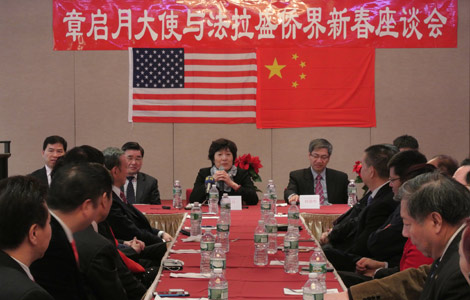
 Consul general weighs in
Consul general weighs in
 10 destinations favored by Chinese property investors
10 destinations favored by Chinese property investors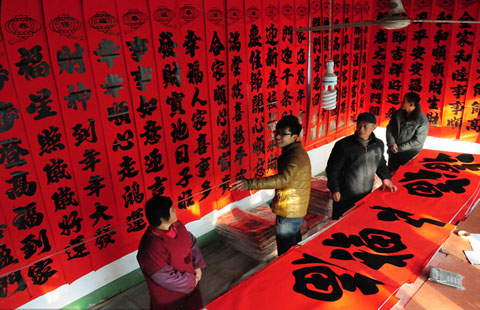
 Spring Festival goods in the making
Spring Festival goods in the making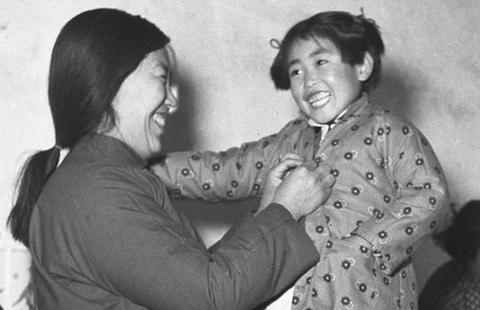
 New Year scenes preserved in old photos
New Year scenes preserved in old photos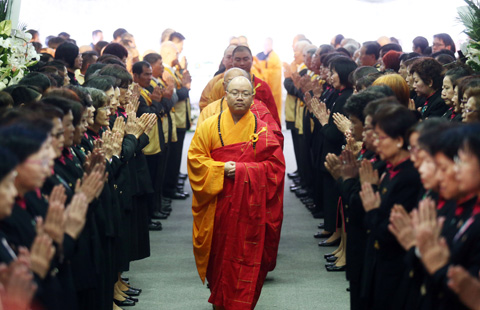
 Remembering the dead on the seventh day after TransAsia crash
Remembering the dead on the seventh day after TransAsia crash
Most Viewed
Editor's Picks

|

|

|

|

|

|
Today's Top News
US has 'risen to the challenge' of fighting Ebola
Obama asks Congress to authorize military force against IS
Chinese tourists highly satisfied with Canada travel
President Xi to visit US in September
Study sees consumer confidence faltering
NBC News anchor Brian Williams suspended
US confirms death of IS-held hostage
High royalties key reason behind Qualcomm fine: NDRC
US Weekly

|

|







